Home>Garden Essentials>Garden Plants>What Is Thyme Tea Good For?
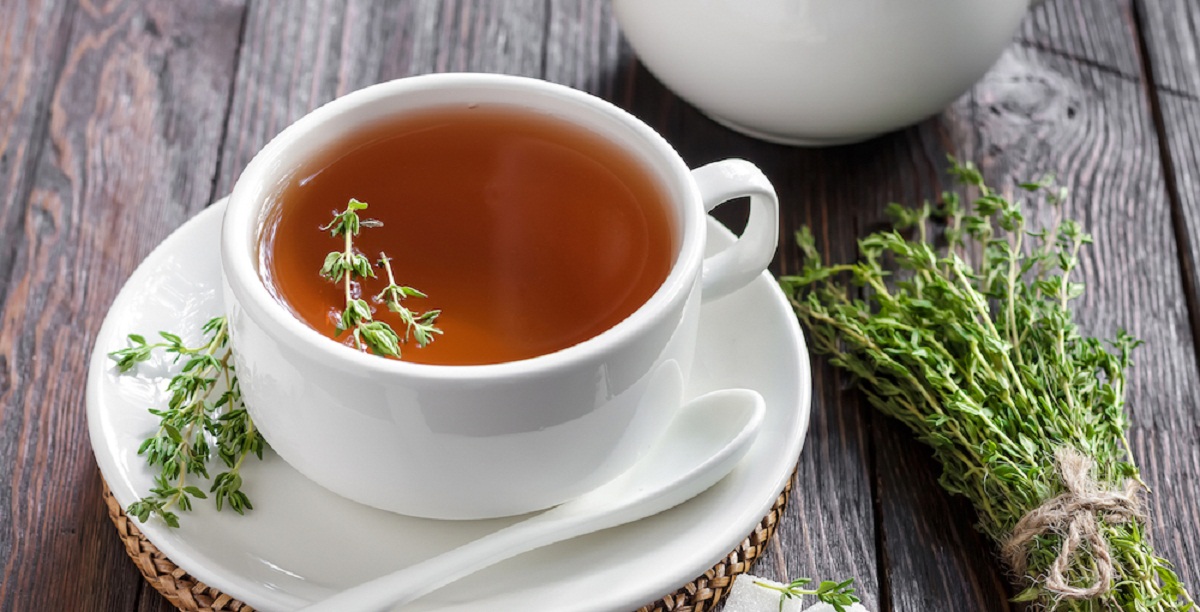

Garden Plants
What Is Thyme Tea Good For?
Modified: January 5, 2024
Discover the numerous health benefits of thyme tea, an herbal infusion made from plants. Learn how this natural remedy can improve digestion, boost immunity, and relieve cough and cold symptoms.
(Many of the links in this article redirect to a specific reviewed product. Your purchase of these products through affiliate links helps to generate commission for Storables.com, at no extra cost. Learn more)
Introduction
Welcome to the wonderful world of thyme tea! This herbal drink is not only delicious, but it also offers a wide range of health benefits. Thyme, a popular herb used in cooking, has been used for centuries for its medicinal properties. When steeped in hot water, thyme leaves release essential oils and active compounds that can help with various health issues. From boosting the immune system to relieving cough and congestion, thyme tea has become a go-to remedy for many people.
Thyme tea is made by infusing thyme leaves in hot water. It can be enjoyed hot or cold, and can be customized with the addition of honey, lemon, or other herbs for added flavor. But what exactly makes thyme tea so beneficial? Let’s dive into the various benefits it has to offer.
Key Takeaways:
- Thyme tea offers a versatile array of health benefits, from boosting the immune system to soothing respiratory issues and aiding digestion. It’s a delightful and natural remedy to incorporate into your daily wellness routine.
- When preparing thyme tea, choose the right thyme, experiment with brewing methods, and consider potential side effects. Consult with a healthcare professional for personalized guidance on incorporating this herbal elixir into your lifestyle.
Read more: What Is Thyme Herb Good For
Benefits of Thyme Tea
Thyme tea is packed with essential nutrients and bioactive compounds that offer numerous health benefits. Here are some of the key advantages of incorporating thyme tea into your daily routine:
Boosts the immune system
Thyme tea contains powerful antioxidants like vitamin C and flavonoids that help strengthen the immune system. These antioxidants help protect the body against free radicals and reduce inflammation, thus boosting overall immunity and reducing the risk of infections.
Relieves cough and congestion
Thyme tea is well-known for its ability to soothe cough and congestion. It acts as an expectorant, helping to loosen mucus and phlegm in the respiratory tract, making it easier to expel. The antimicrobial properties of thyme tea also help fight against bacterial and viral infections that cause respiratory issues.
Improves respiratory health
Thyme tea can be beneficial for individuals with respiratory conditions such as asthma, bronchitis, and allergies. Its bronchodilator properties help relax the muscles in the respiratory tract, easing breathing and reducing wheezing. Regular consumption of thyme tea can help improve overall respiratory health.
Read more: What Is Spanish Thyme Good For
Aids digestion
Drinking thyme tea after a heavy meal can aid in digestion. Thyme contains compounds that stimulate the production of digestive enzymes, promoting better digestion and reducing the risk of indigestion, bloating, and flatulence. It also has antimicrobial properties that can help combat harmful bacteria in the gut.
Treats sore throat
Thyme tea has soothing properties that can help alleviate a sore throat. The antimicrobial and anti-inflammatory compounds present in thyme tea help reduce irritation and swelling in the throat, providing relief from pain and discomfort.
Soothes menstrual discomfort
For women experiencing menstrual cramps and discomfort, thyme tea can be a natural remedy. Thyme has antispasmodic properties that help relax the muscles of the uterus, reducing menstrual pain and cramps. It can also help regulate menstrual cycles.
Supports heart health
Thyme tea contains compounds that can promote heart health. It has been found to lower blood pressure and reduce the risk of cardiovascular diseases. The antioxidants in thyme tea help protect the heart from oxidative stress and inflammation, supporting overall heart health.
Read more: What Is Tea Tree Oil Good For In A Diffuser
Promotes healthy skin
Thyme tea possesses antimicrobial and antioxidant properties that can be beneficial for the skin. It helps fight against acne-causing bacteria and can reduce inflammation associated with skin conditions like eczema and psoriasis. Regular consumption of thyme tea can contribute to healthier and clearer skin.
Overall, thyme tea is a versatile herbal drink that offers a wide array of health benefits. Whether you are looking to boost your immune system, improve respiratory health, support digestion, or alleviate menstrual discomfort, a cup of thyme tea can be a simple and natural remedy to incorporate into your daily routine.
How to Make Thyme Tea
If you’re ready to reap the benefits of thyme tea, here’s a handy guide on how to make it yourself:
Choosing the right thyme
When making thyme tea, it’s essential to choose the right type of thyme. Common thyme (Thymus vulgaris) is the most readily available variety and is commonly used for culinary purposes. You can also opt for lemon thyme or other thyme varieties for a slightly different flavor profile.
Fresh or dried thyme
Both fresh and dried thyme can be used to make thyme tea, but the flavor intensity may vary. Fresh thyme leaves have a more potent aroma, while dried thyme leaves have a more concentrated flavor. Choose whichever option you prefer or have available.
Read more: How Do You Make Thyme Tea
Preparing the tea
To make thyme tea, start by rinsing fresh thyme leaves or measuring out the desired quantity of dried thyme. Use about 1 to 2 teaspoons of dried thyme or a small handful of fresh thyme leaves per cup of water.
If using fresh thyme, gently crush the leaves to release their essential oils. This will enhance the flavor of the tea. If using dried thyme, you can skip this step.
Brewing options
There are a few different ways to brew thyme tea, depending on your preference:
- Hot infusion: Place the thyme leaves in a teapot or mug and pour boiling water over them. Let it steep for about 5 to 10 minutes, depending on how strong you want the flavor. Strain the leaves and enjoy your hot thyme tea.
- Cold infusion: If you prefer a cold thyme tea, you can use the same method as for hot infusion but let the tea steep for a longer period, around 1 to 2 hours, before straining and chilling it in the refrigerator. You can add ice cubes, lemon slices, or mint leaves to enhance the flavor.
- Thyme tea blends: You can get creative and mix thyme leaves with other complementary herbs like mint, chamomile, or lemon balm to create unique flavor combinations. Simply combine the herbs, follow the hot or cold infusion method, and enjoy your customized thyme tea blend.
Remember to experiment with the steeping time and amount of thyme to find your preferred flavor strength. You can also add natural sweeteners like honey or a squeeze of lemon juice to enhance the taste, if desired.
With these simple steps, you’ll be able to prepare a refreshing cup of thyme tea in no time. Enjoy this soothing and aromatic herbal drink, and savor the numerous health benefits it offers.
Potential Side Effects and Precautions
While thyme tea offers many health benefits, it’s important to be aware of potential side effects and take necessary precautions:
Allergic reactions
Some individuals may have an allergic reaction to thyme or other herbs in the same plant family, such as mint, basil, or oregano. If you have a known allergy to these herbs, it’s best to avoid thyme tea to prevent any allergic reactions. Common symptoms of an allergic reaction include skin rash, itching, swelling, or difficulty breathing. If you experience any of these symptoms after consuming thyme tea, seek medical attention immediately.
Read more: Where Can I Buy Thyme Tea
Interference with medications
Thyme tea may interact with certain medications. It’s essential to consult with your healthcare provider before incorporating thyme tea into your routine, especially if you are taking any prescription medications or have underlying health conditions. Thyme contains compounds that can affect the absorption or metabolism of certain medications, such as blood thinners, anticoagulants, and antidiabetic drugs. Your healthcare provider will be able to advise you on potential interactions and provide guidance on the appropriate use of thyme tea.
Pregnancy and breastfeeding considerations
If you are pregnant or breastfeeding, it’s crucial to exercise caution when consuming thyme tea. Thyme contains certain compounds that may stimulate uterine contractions, which could potentially lead to complications during pregnancy. While there is limited evidence on the safety of thyme tea during pregnancy and breastfeeding, it’s best to err on the side of caution and avoid excessive consumption. Consulting with your healthcare provider is recommended to ensure the safety and well-being of both you and your baby.
As with any herbal remedy or supplement, moderation is key. It’s recommended to consume thyme tea in moderation and not exceed the recommended daily intake. If you experience any unusual symptoms or adverse reactions after consuming thyme tea, discontinue use and seek medical attention.
It’s essential to remember that individual responses to herbal remedies can vary. While thyme tea is generally considered safe for most people when consumed in moderation, it’s always a good idea to consult with a healthcare professional to determine if it is suitable for your specific circumstances.
Conclusion
Thyme tea is not only a delightful herbal beverage but also a powerful elixir with a multitude of health benefits. From boosting the immune system to relieving cough and congestion, improving respiratory health to aiding digestion, thyme tea has been cherished for centuries for its therapeutic properties.
By incorporating thyme tea into your daily routine, you can enjoy its immune-boosting abilities, soothe respiratory issues, aid in digestion, and even find relief from sore throat and menstrual discomfort. Additionally, thyme tea supports heart health and promotes clear and healthy skin.
Preparing thyme tea is a straightforward process, whether you choose to use fresh or dried thyme. With just a few simple steps, you can brew a cup of thyme tea that suits your taste and preference. You can enjoy it hot or cold and even experiment with different herbal blends for a personalized flavor experience.
While thyme tea is generally safe for most individuals, it’s essential to be aware of potential side effects and take necessary precautions. Allergic reactions, interactions with medications, and considerations for pregnancy and breastfeeding should be taken into account when consuming thyme tea. Consulting with a healthcare professional is recommended, especially for individuals with specific health conditions or concerns.
In conclusion, thyme tea offers a plethora of health benefits and is a versatile and enjoyable beverage. Whether you’re looking for a natural remedy to boost your immune system, relieve respiratory issues, support digestion, or find relief from menstrual discomfort, thyme tea can be a valuable addition to your wellness routine. So, go ahead, brew yourself a cup of thyme tea, and savor both its delicious flavor and its many health-promoting properties.
References
1. Chevallier, A. (2016). Encyclopedia of Herbal Medicine. Dorling Kindersley Ltd.
2. Ghasemzadeh, A., & Ferdosh, S. (2017). Herbal teas and their health benefits: A scoping review. Plant Foods for Human Nutrition, 72(4), 429-439.
3. Hammad, S., & Aljebreen, A. M. (2018). Gastroprotective Effects of Thyme Extracts. Evidence-Based Complementary and Alternative Medicine, 2018, 1-11.
4. Modarresi-Chahardehi, A., et al. (2013). Essential oil composition and antibacterial activity of Thymus spp. collected in different regions of Iran. Food Control, 29(2), 496-502.
5. Mossa, A. T. H. (2016). Biological activities of Thymus vulgaris L. essential oil. Journal of Applied Pharmaceutical Science, 6(5), 117-123.
6. Pérez-Sánchez, A., et al. (2017). Mechanisms involved in the anti-inflammatory action of thymol and carvacrol: a review. Food & Function, 8(9), 2893-2907.
7. Rashedi, M., et al. (2017). Antioxidant and Hepatoprotective Activities of Thymus vulgaris Extract against CCl4-Induced Liver Injury in Rats. Pharmaceutical Sciences, 23(3), 218-228.
8. Shahali, Y., et al. (2017). Inhalation therapy with herbal essential oils alleviates lung inflammation in mice with acute lung injury. Inflammation, 40(2), 524-535.
9. Sharifi-Rad, J., et al. (2018). Therapeutic potential of Thymus species in the treatment of inflammatory bowel disease: an overview. Food and Chemical Toxicology, 120, 261-277.
10. Zhang, L., et al. (2018). Preliminary studies of inhibitory effects of pure compounds isolated from various essential oils on the formation and growth of aflatoxin B1-induced hepatic preneoplastic lesions. Cancer Research and Prevention, 45(6), 457-464.
Please note that these references are for informational purposes only and should not replace professional medical advice.
Frequently Asked Questions about What Is Thyme Tea Good For?
Was this page helpful?
At Storables.com, we guarantee accurate and reliable information. Our content, validated by Expert Board Contributors, is crafted following stringent Editorial Policies. We're committed to providing you with well-researched, expert-backed insights for all your informational needs.

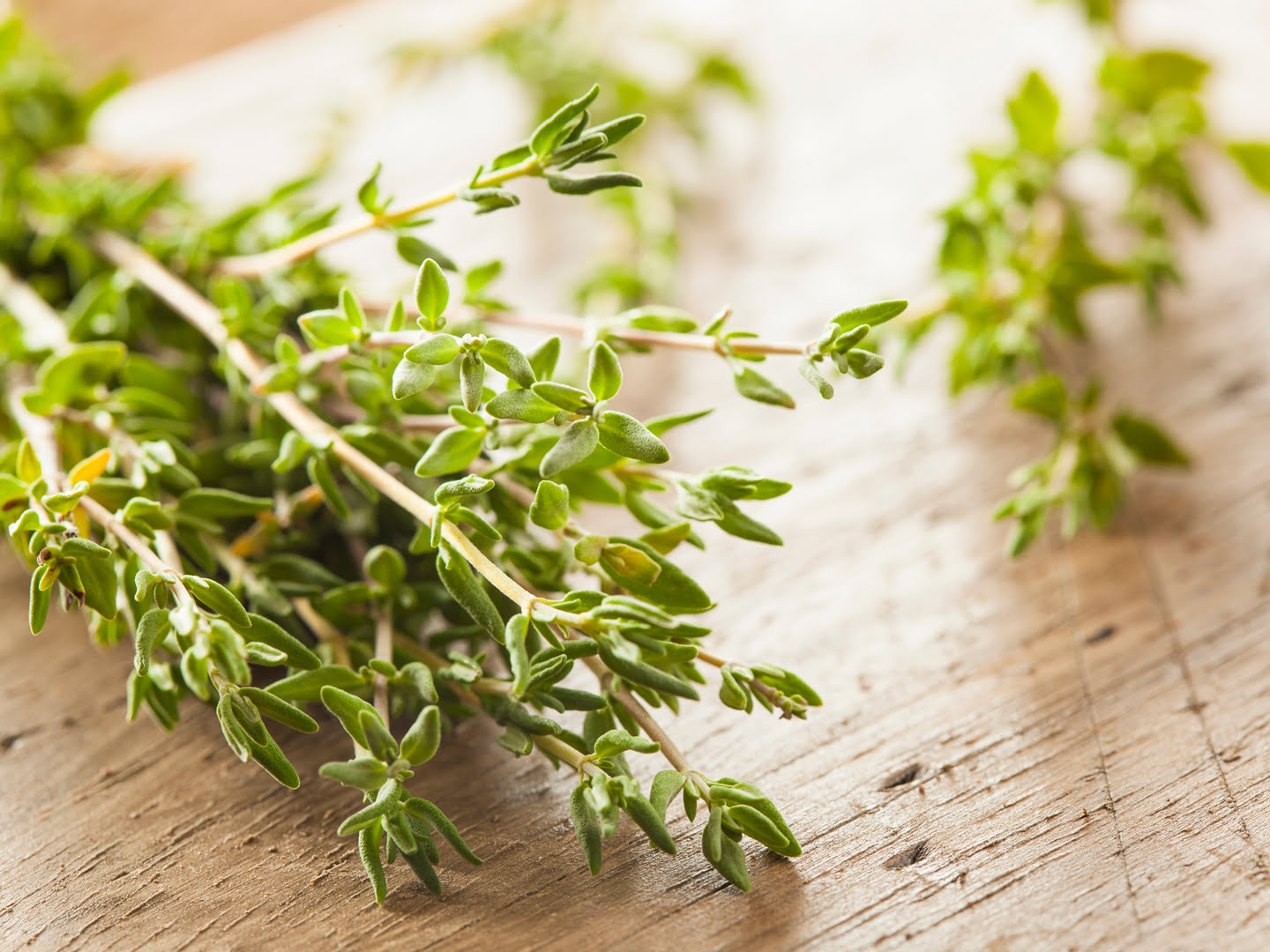
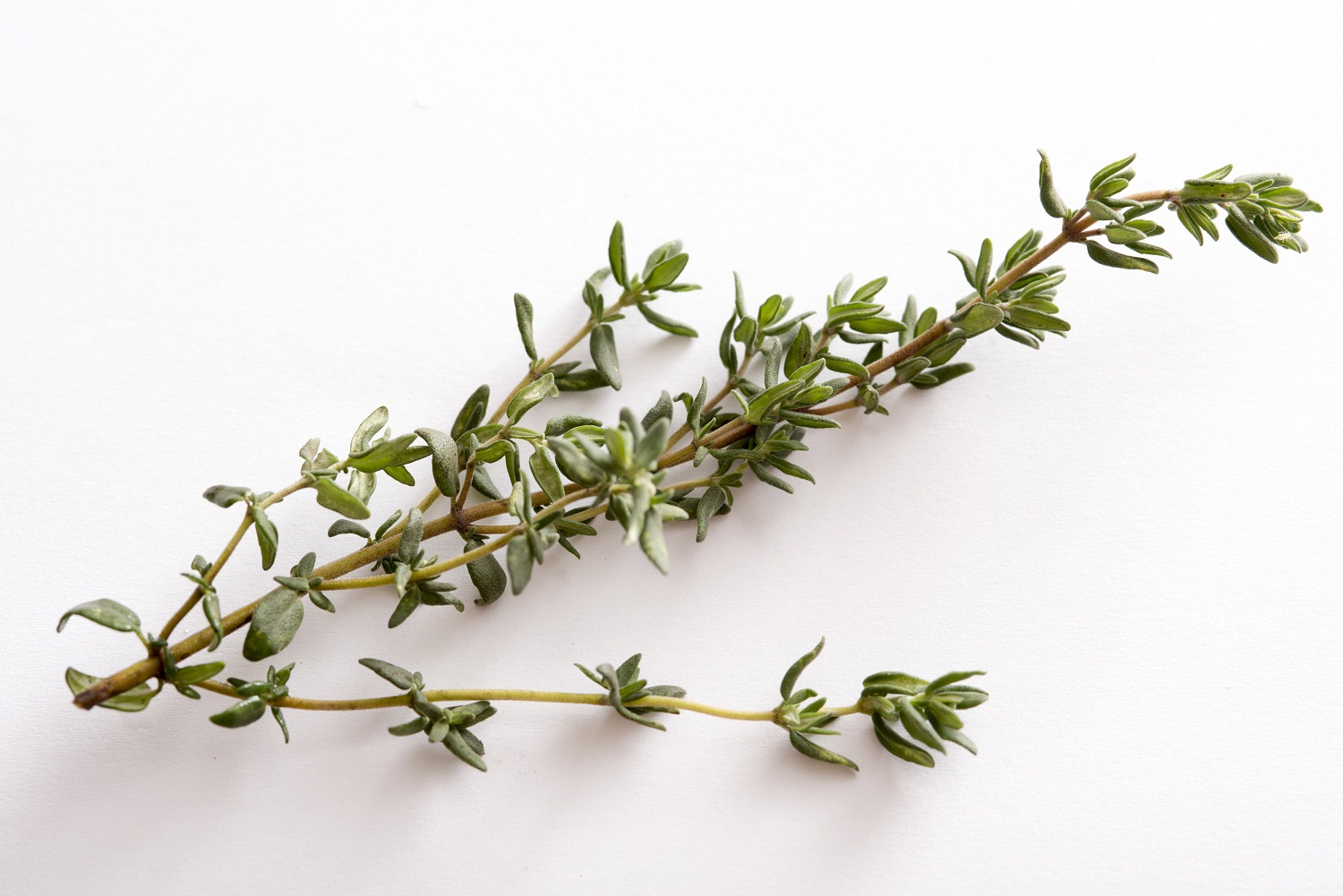
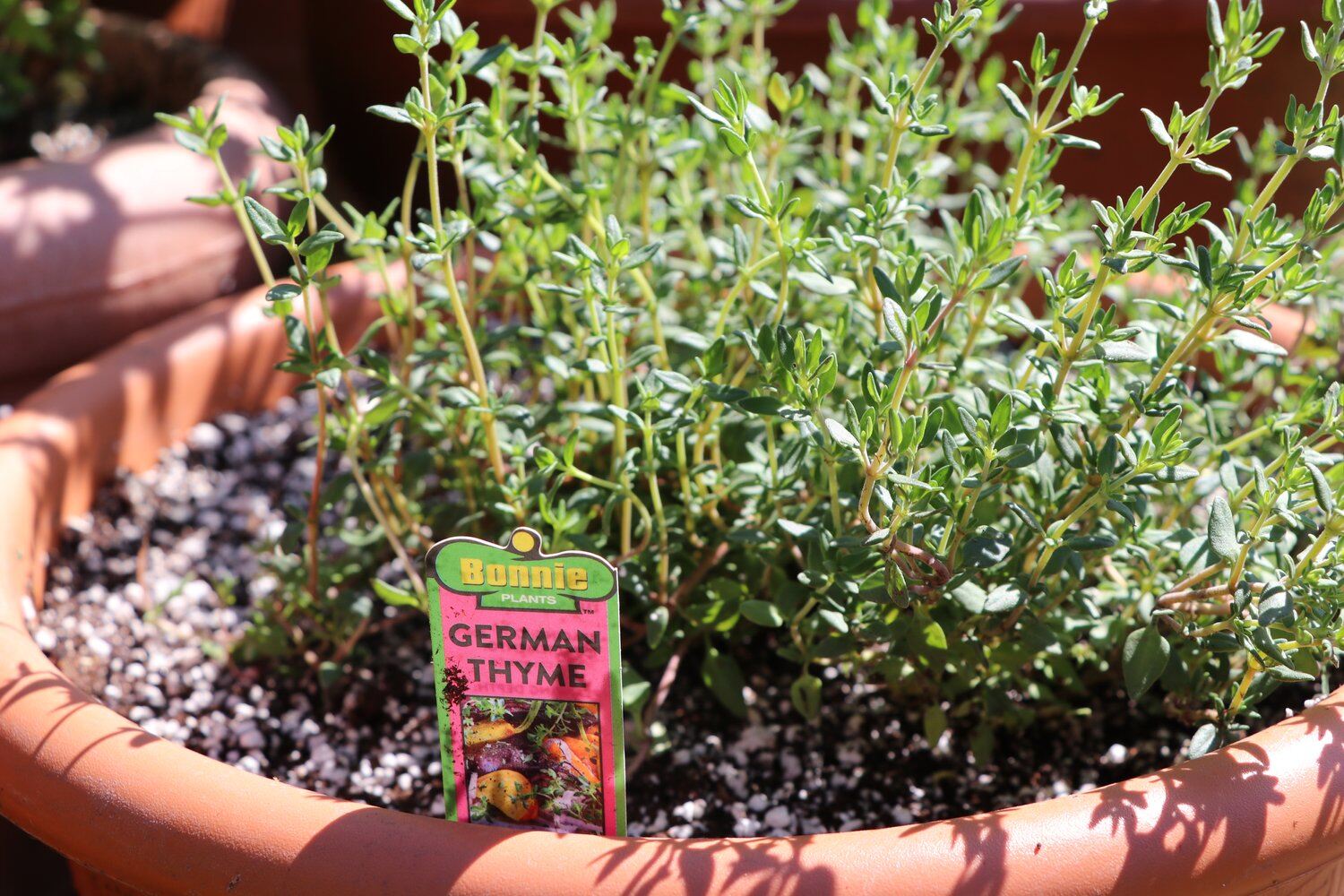


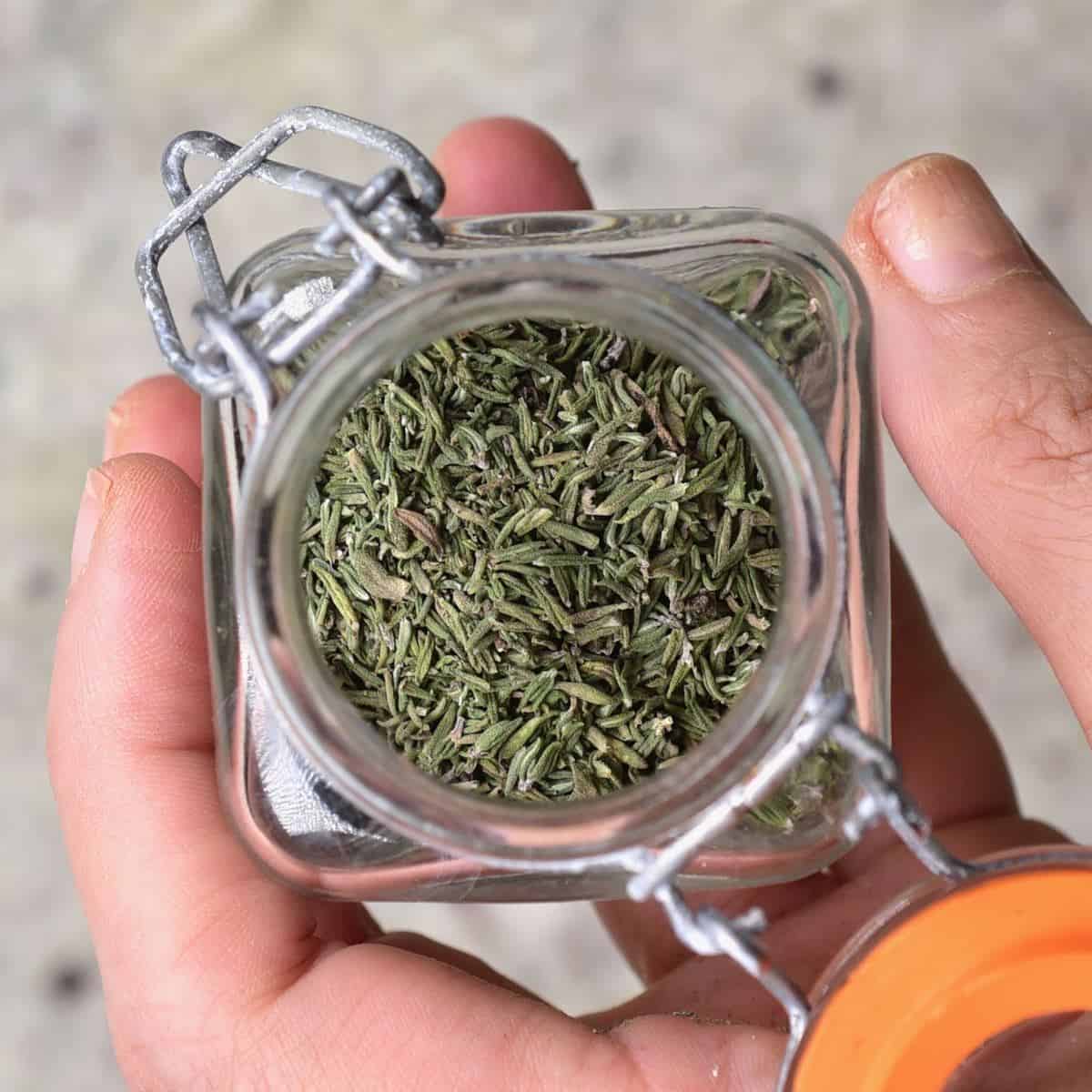
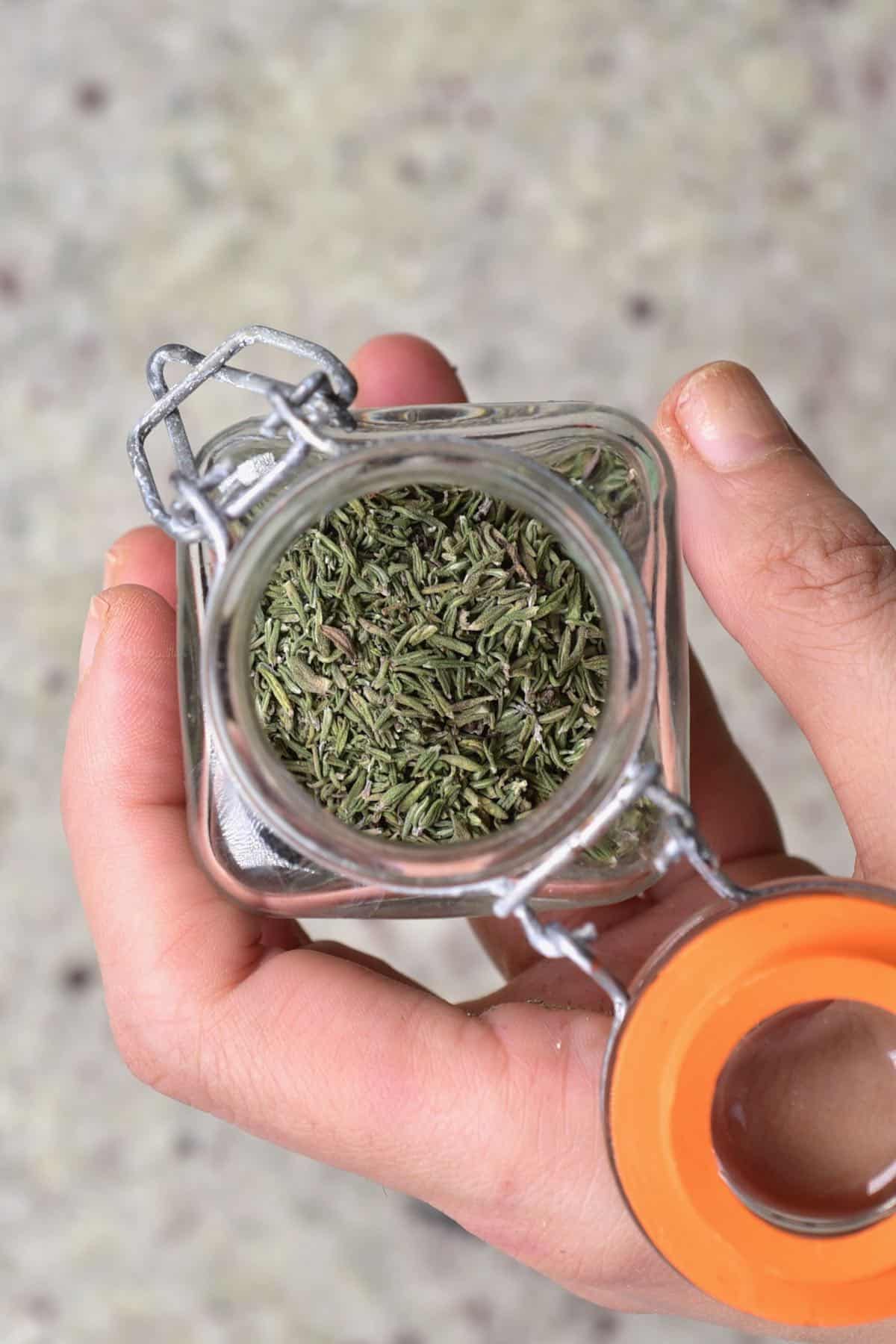
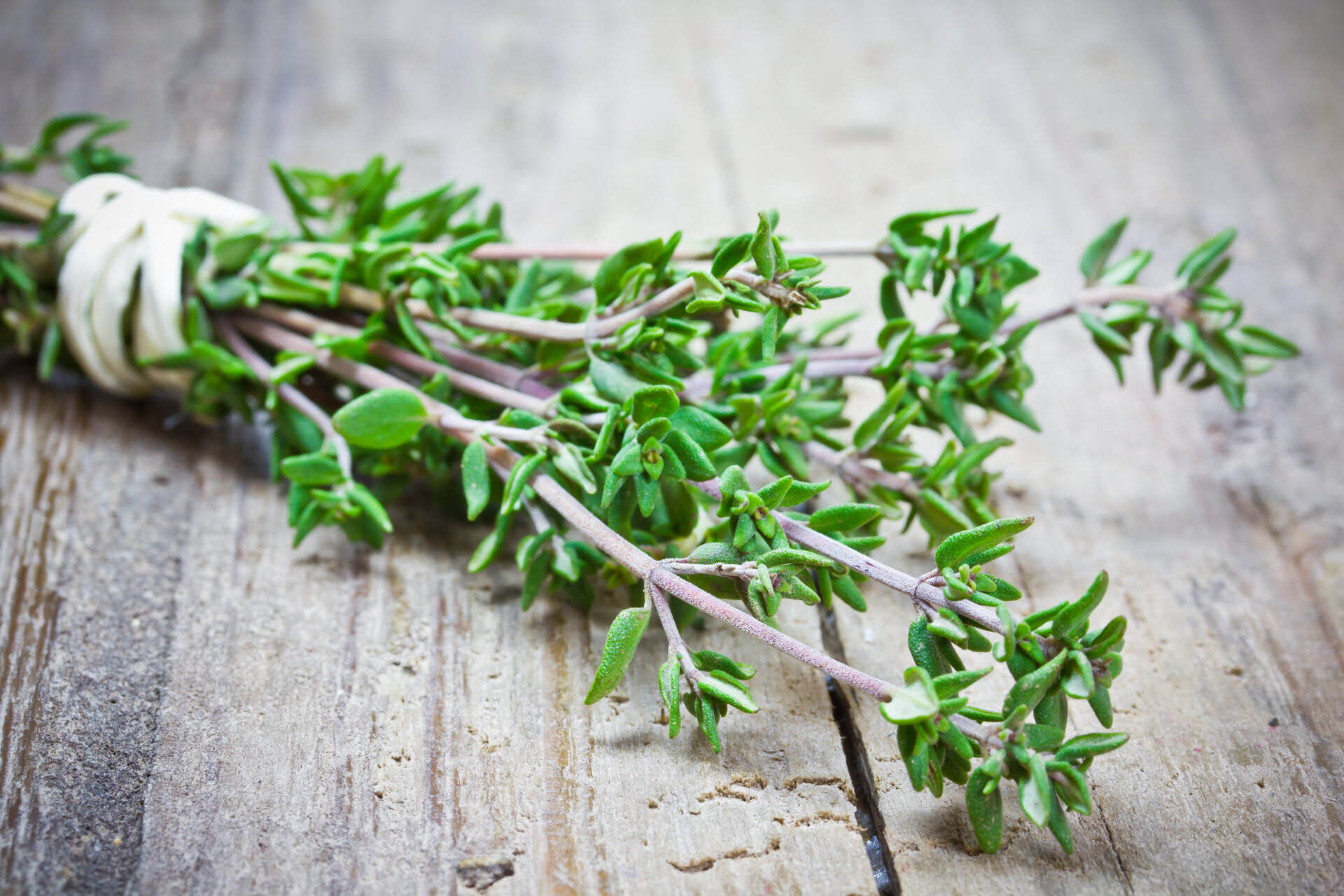

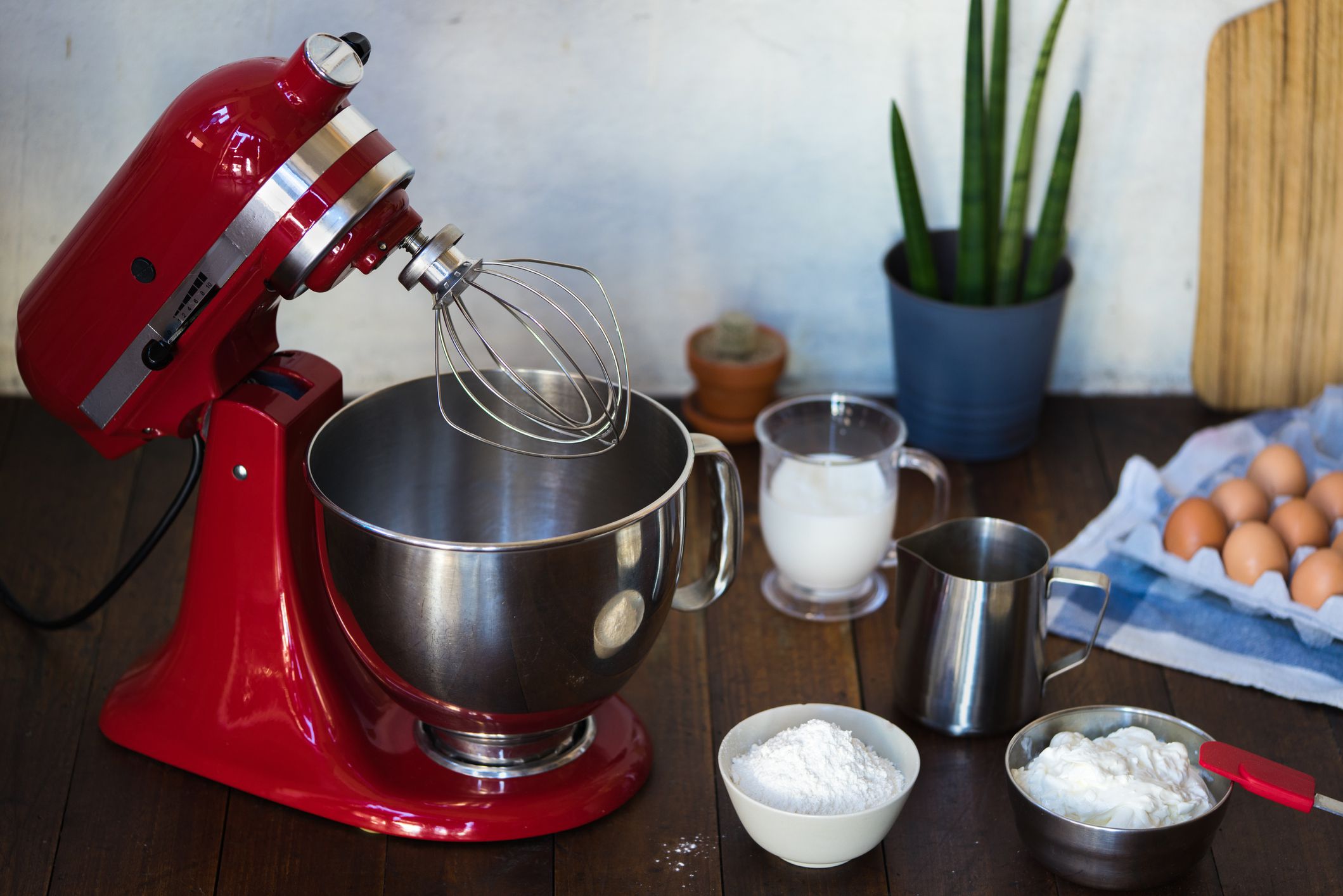

0 thoughts on “What Is Thyme Tea Good For?”